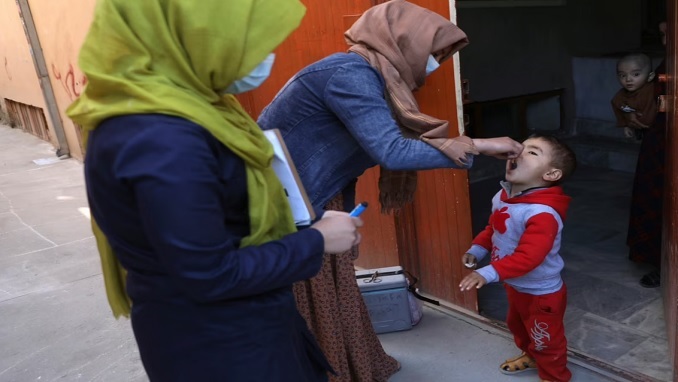The office of the United Nations Children’s Fund (UNICEF) in Afghanistan announced Monday that Afghanistan kicked off a nationwide anti-polio vaccination campaign for children under the age of 5, the second one since August 2021 when the Taliban seized power.
Under a deal negotiated with the United Nations, the Taliban agreed to allow such programs after banning vaccinations in areas under their control before returning to power.
Afghanistan’s Public Health Ministry launched the first four-day polio vaccine campaign in 2023 to vaccinate more than 5.3 million children under five in 16 out of the country’s 34 provinces, including the capital Kabul.
Afghanistan along with Pakistan is the only nation in the world where polio is still endemic and Afghanistan’s Public Health Ministry has been trying to bring to zero the crippling disease among children.
The country has noted a significant reduction in the number of cases since 2020 when 56 cases with two polio cases registered in the Nangarhar province so far this year, and only two polio cases were reported in 2022 in the two eastern provinces of Paktika and Kunar.
This decrease brings Afghanistan closer to interrupting polio transmission than ever before. However, vigilance is still a key factor, and highly sensitive surveillance, as the World Health Organization (WHO) explains, enables the polio program to quickly detect the presence of the disease and guides rapid targeted responses.
In the first nationwide integrated measles and polio campaign in Afghanistan since the transition in August 2021 when the Taliban came to power – from November 26 to December 12, 2022 – Afghanistan has vaccinated 6.1 million children 0-5 years with oral polio vaccine while 5.36 million Afghan children 9 months to 5 years were vaccinated against measles.
The campaign included 4341 vaccination teams comprising 4 team members which covered 329 districts in all 34 provinces of Afghanistan, data from Afghanistan’s Ministry of Public Health Expanded Programme on Immunization shows.



